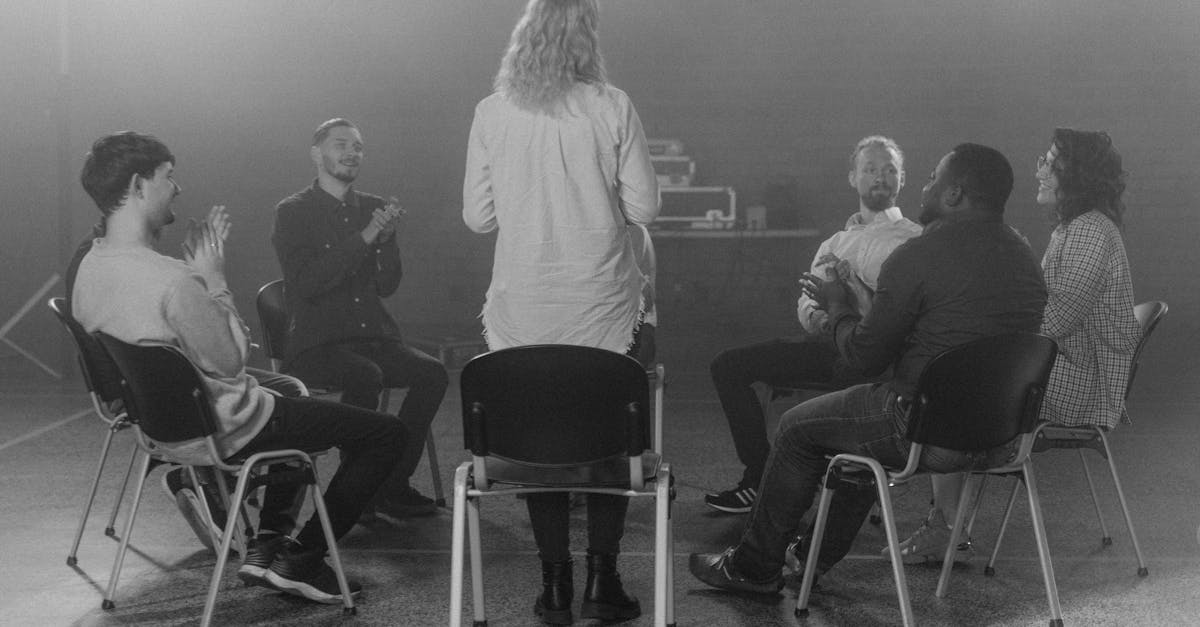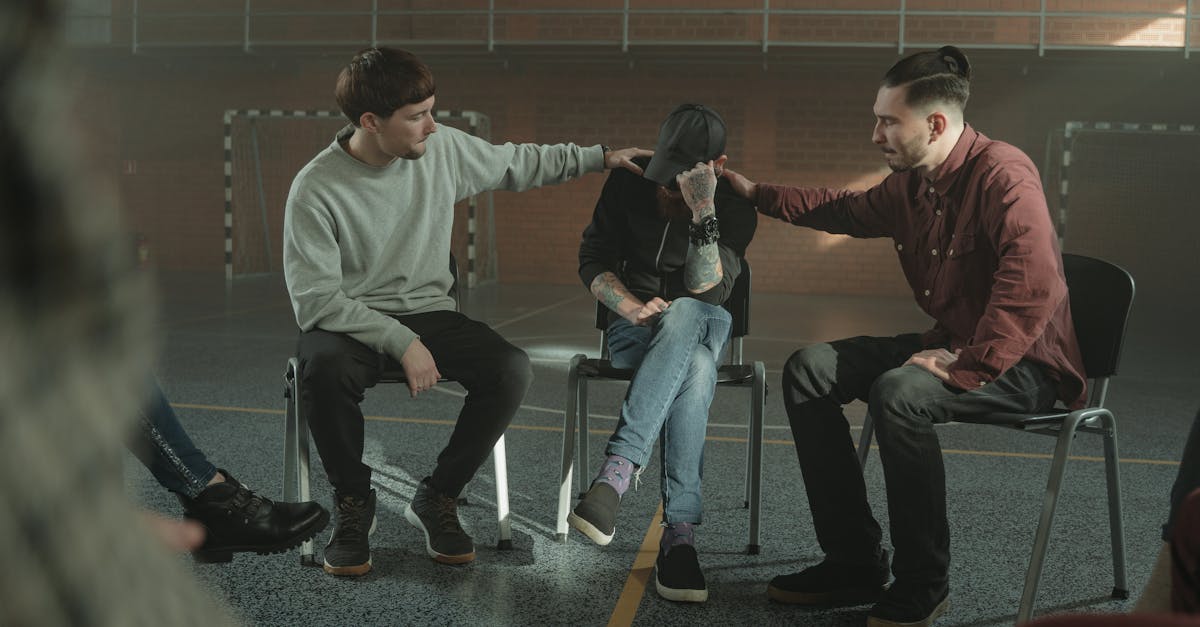
Music Therapy
Music therapy is a widely recognized form of group therapy that utilises the power of music to promote healing and emotional well-being among participants. The impact of music on individuals in group settings is profound, as it can evoke deep emotions, facilitate communication, and foster a sense of connection among group members. Through engaging in music-making activities together, participants in music therapy sessions have the opportunity to express themselves creatively, build trust within the group, and develop a greater sense of community and support.
The therapeutic benefits of music extend beyond just the enjoyment of listening or playing; they can also help individuals process and work through difficult emotions, reduce feelings of isolation, and improve overall mental health. In group therapy settings, music therapy has been shown to enhance social skills, increase self-esteem, and provide a safe space for individuals to explore and express their emotions through a shared, meaningful experience. The power of music to unite, heal, and uplift individuals in group therapy sessions offers a unique and effective approach to promoting overall well-being and personal growth.
The Impact of Music on Emotional WellBeing
Music therapy is a powerful tool used in group therapy sessions to enhance emotional well-being. The rhythmic beats and melodies can evoke various emotions and memories, providing a unique way for individuals to explore and express their feelings within a supportive group setting. Research has shown that music can have a profound impact on our emotions, helping to reduce stress, anxiety, and depression while promoting feelings of relaxation and connectedness among group members.
Moreover, music has the ability to transcend language barriers, allowing individuals from diverse backgrounds to connect and communicate through a shared musical experience in group therapy. By incorporating music into group therapy sessions, facilitators can create a safe and inclusive environment where participants can express themselves freely and bond with others through the universal language of music. This holistic approach to healing not only fosters emotional well-being but also strengthens the sense of community and support within the group therapy setting.
EquineAssisted Therapy
Equine-Assisted Therapy is gaining popularity as a unique form of group therapy that involves interactions with horses to enhance emotional well-being and promote personal growth. The healing power of horses in group sessions is evident through the deep connections and trust that participants develop with these gentle animals, leading to a sense of calmness and improved self-awareness within the group dynamic. By engaging in activities such as grooming, leading, and riding horses together, individuals in the group can experience a deeper sense of connection and empathy towards one another, fostering a supportive environment for emotional healing.
Equine-Assisted Therapy offers a holistic approach to group therapy by incorporating the therapeutic benefits of nature and animal interactions. The presence of horses in group sessions helps individuals to become more present in the moment and connect with their emotions in a non-judgmental and nurturing space. By engaging in mindfulness practices while interacting with horses, participants can cultivate a sense of inner peace and develop coping strategies to manage stress and anxiety. Overall, Equine-Assisted Therapy provides a unique and effective way for individuals to explore their emotions and build resilience in a supportive group setting.
The Healing Power of Horses in Group Sessions
Equine-assisted therapy has gained recognition for its profound impact on participants in group therapy settings. The presence of horses in group sessions can create a safe and non-judgmental environment, fostering trust and emotional connection among individuals. Through interacting with these gentle animals, participants often find comfort and build a sense of companionship, enhancing the overall therapeutic experience of the group.
Horses have a unique ability to mirror human emotions, allowing individuals in group therapy to gain deeper insights into their own feelings and behaviours. This reflection can lead to increased self-awareness and emotional regulation within the group, promoting personal growth and healing. The calming presence of horses can also reduce feelings of anxiety and stress, creating a soothing atmosphere for participants to engage in meaningful discussions and mutual support in the context of group therapy.
MindfulnessBased Group Therapy Practices
Mindfulness-based group therapy practices are gaining popularity as an effective way to enhance overall well-being. In these sessions, participants are guided to cultivate awareness of the present moment without judgment, allowing them to explore their thoughts and emotions in a supportive group setting. By incorporating mindfulness techniques such as meditation and deep breathing exercises, individuals can develop skills to manage stress and enhance their coping mechanisms within the group therapy context.
The group dynamics in mindfulness-based therapy sessions create a sense of community and belonging among participants. Through shared experiences and mutual support, individuals can build connections and bond over their journey towards mindfulness and emotional wellness. The practice of mindfulness in a group setting not only promotes individual growth but also fosters a sense of unity and understanding within the group therapy environment.
Cultivating Inner Peace through Group Meditation
Cultivating inner peace through group meditation in the realm of group therapy offers a harmonious space for individuals to collectively engage in mindful practices. Meditation sessions conducted in a group setting provide a supportive environment that encourages participants to delve deep into their inner selves, fostering a sense of tranquility and self-awareness. Through the collective energy generated during group meditation, individuals can enhance their emotional well-being and find solace in the shared experience of quiet introspection.
The meditative journey in group therapy fosters a deep sense of connection among participants as they embark on a quest for inner peace together. By practising mindfulness in a group setting, individuals can benefit from the collective wisdom and energy that arises from shared sessions. Group meditation provides a safe space for individuals to explore their thoughts and emotions, cultivating a sense of calm and resilience that extends beyond the therapy sessions.
FAQS
What is group therapy?
Group therapy involves a therapist working with multiple individuals at the same time to address common issues or goals, providing support and promoting healing through shared experiences.
What are the benefits of group therapy?
Group therapy offers a sense of belonging, reduces feelings of isolation, provides different perspectives, enhances social skills, and fosters a supportive environment for personal growth and healing.
How does music therapy benefit group therapy sessions?
Music therapy in group sessions can help facilitate emotional expression, improve communication, promote relaxation, and enhance group cohesion through shared musical experiences.
Why is equine-assisted therapy popular in group settings?
Equine-assisted therapy is popular for its ability to enhance group dynamics by promoting trust, communication, and teamwork among participants while benefiting from the calming presence of horses.
How does mindfulness-based group therapy promote well-being?
Mindfulness-based group therapy practices help individuals cultivate inner peace, reduce stress, increase self-awareness, and improve overall emotional well-being through group meditation and mindfulness exercises.


